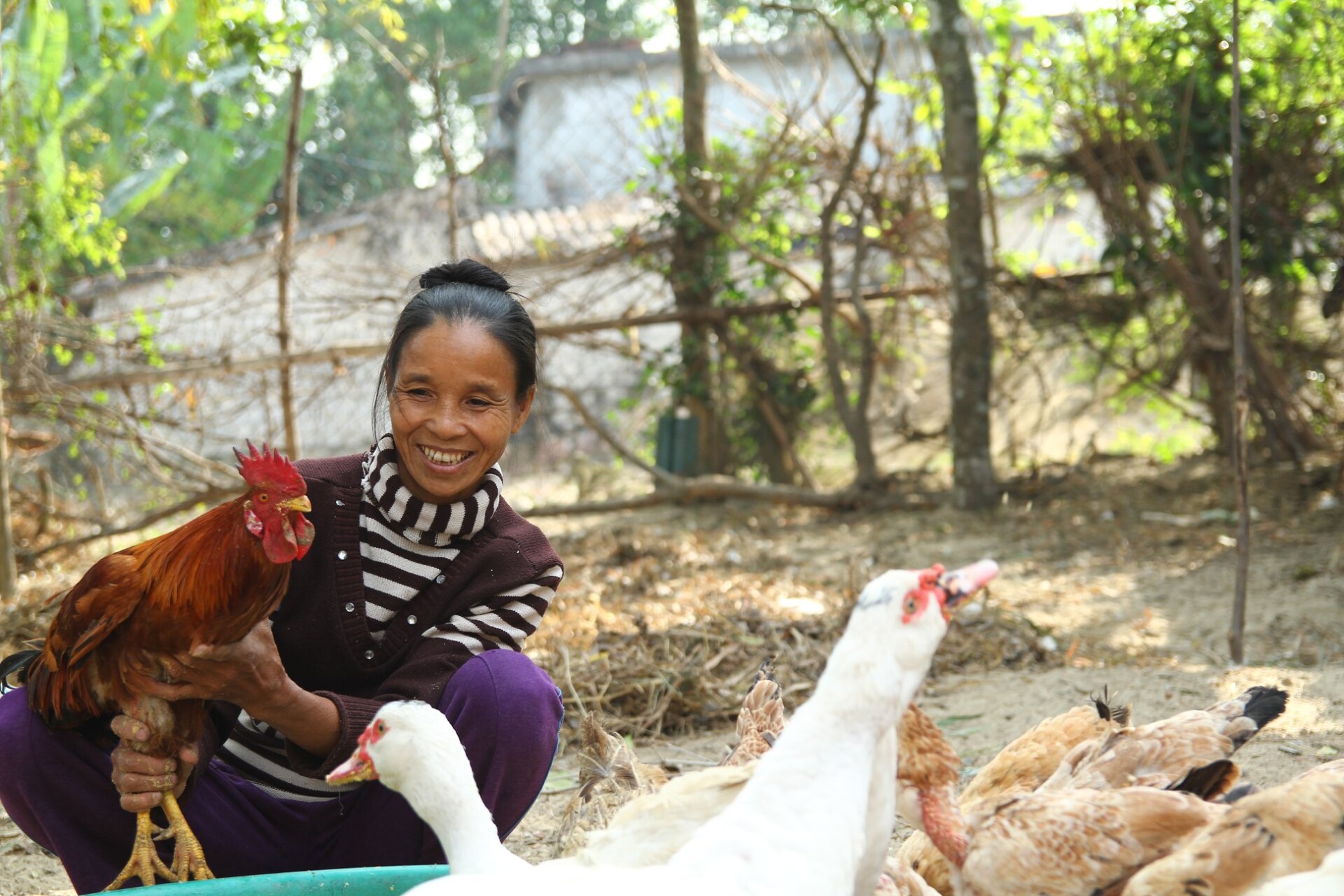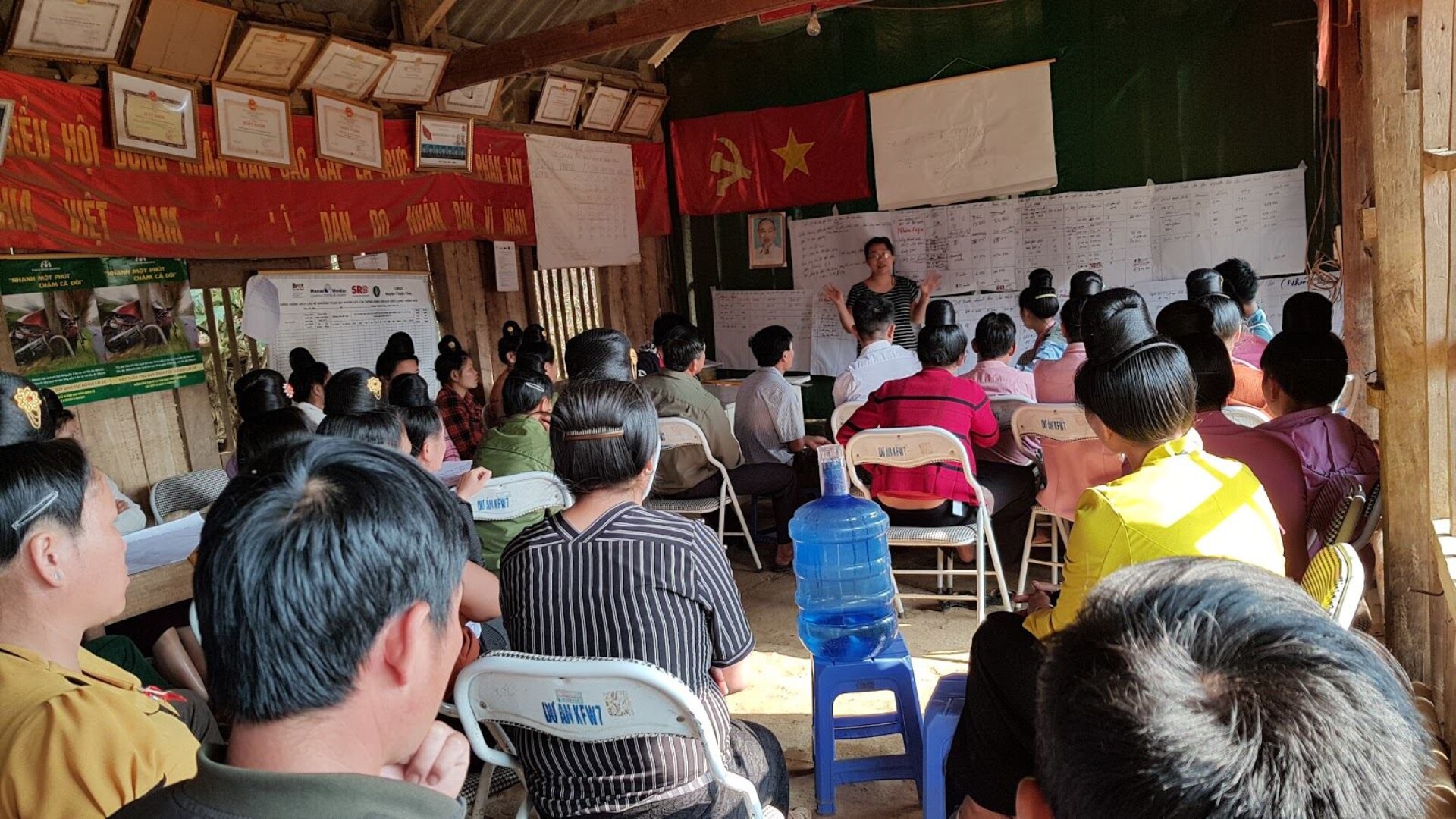
Success story
Building Capacity: A Transition from Instant Gratification to Long Term Sustainability
My name is Shelby Woodall and I am an International Development student at the University of Waterloo. As part of my fourth and final year of studies, I am in Hanoi, Vietnam completing a seven-month placement at the Centre for Sustainable Rural Development (SRD). SRD works with marginalized rural communities to alleviate poverty and create more sustainable livelihoods while paying special attention to ethnic minorities, people with disabilities, women, and youth. By focusing on forestry and sustainable agriculture with a network of local, national, and international partners, SRD aims to help influence future policy as well as facilitate meaningful change in the field. Due to the resilience of its people and the help of international aid, Vietnam has been able to quickly develop and grow into an emerging middle-income country. However, many rural communities, especially ethnic minorities in the Northern mountains have failed to feel the effects of this development and largely remain impoverished. My role at the organization is as part of the Sustainable Agriculture team contributing to research, networking, and grant proposals.
Throughout my studies at the University of Waterloo, the importance of capacity building was often emphasized. The approach was consistently discussed in classes and is a crucial part of my WUSC placement. Capacity building is an approach to development that aims to build skills and resilience within the target group. It is the idea of teaching a group to be self-sufficient rather than dependent on an outside source for aid. This concept is extremely important in development work because it encourages sustainable solutions that allow communities to progress in a more organic way that can continue long after the development actor is no longer present.

Participants of a workshop to restore native varieties of sticky rice. Project VM059: Conversation of Agro-biodiversity and Strengthening the Climate Resiliency of Poor Communities, funded by Bread for the world and Manos Unidas, implemented by SRD. Photo courtesy of the Centre for Sustainable Rural Development (SRD).
Capacity building is relevant to my work in a variety of ways. Firstly, capacity building is important to my role as a WUSC volunteer. This means that when I do work, I must take all necessary steps to make sure it is sustainable. This includes creating the necessary documentation, developing tools, or leading workshops so that the work can be continued once I leave the organization. This is especially important in my work at SRD due to staff turnover. When I take on a task, I have to decide how to incorporate my coworkers and teach the necessary skills or create a training manual for new employees. At a larger scale, much of the work SRD is doing focuses on capacity building. Many of the projects involve the team working on the ground with small rural communities and local partners. SRD does not have access to large amounts of resources, so rather than giving participants resources, they focus on teaching skills so that participants are able to gather their own resources. One example of this is a recent project in Son La province to increase chicken breeding for increased income. Rather than give the participants additional chickens, SRD facilitated workshops and farmers groups so that participants were able to learn the skills necessary to increase the number and health of their chickens.

A workshop participant interacts with her chickens after learning how to better care for them. Project VM052: Towards a Sustainable Livelihood of the Poor Single Women-headed Household by Applying Climate-Smart Agriculture Approach, funded by Manos Unidas, implemented by SRD. Photo courtesy of SRD.
Within the last two months, I have been able to see how capacity building fits into development work. In our studies, we are taught to focus on capacity building because it promotes resilience. However, we do not often talk about the many barriers that must be addressed first. These barriers include, but are not limited to, gender, education, poverty, and politics. These barriers are especially prominent within SRD’s work with rural communities, largely made up of ethnic minorities. Most of the project participants have little education and no expendable income. This means that SRD has to take these barriers into consideration when coming up with a strategy to implement capacity building. Another difficulty lies in building organizational capacity as it is difficult to persuade people to learn new skills, when I could spend less time and resources accomplishing the task myself.
Throughout these first two months, I have learned that in order successfully build capacity, you have to shift the focus from short-term to long-term. In SRD’s case, this means moving farmers away from cash crops and towards a more diversified selection of crops. However, this means asking farmers to sacrifice quick revenue for a smaller but more sustainable revenue in the long-run. While this may not seem too daunting of a task, it is especially challenging when dealing with poor and marginalized groups that cannot necessarily afford to take on this challenge. This is where organizations such as SRD come into play. By utilizing donor money and both international and local partnerships, it becomes easier to help marginalized groups create sustainable, long-term strategies and solutions. SRD holds training sessions and creates farmer schools to help teach farmers how to change their habits and become more resilient to climate change. With the help of donors, SRD is also able to create micro-finance groups, such as the Village Savings Loan Association (VSLA). These groups help farmers to invest in their farms and focus on long-term solutions.

Participants are gathered to attend a training session to build capacity. Project VM059: Conversation of Agro-biodiversity and Strengthening the Climate Resiliency of Poor Communities, funded by Bread for the world and Manos Unidas, implemented by SRD. Photo courtesy of SRD.
Being able to experience capacity-building in a practical sense has given me a much better understanding of the concept and the challenges that come along with it. Before this placement, I understood the importance of capacity building, but did not consider the resistance that it may bring. I think that being able to acknowledge the barriers to change is one of the most important parts of development work. A great solution to a problem can exist, but if the target audience is not willing to accept it, then it is useless. With this being said, SRD’s ability to work so closely with its target groups is helping me to better understand these barriers and learn how real change can be made. Going forward, I am excited to work with SRD to further engage with these barriers and explore solutions that are both progressive and realistic. Additionally, I am grateful for the chance to explore these development concepts in practical settings that allow me to better understand the complexity of international development.
